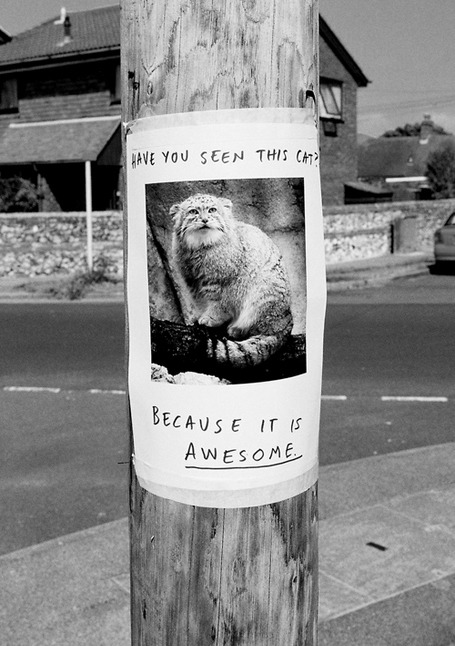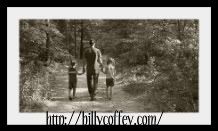
image courtesy of photobucket.com
You might be asking yourself what business I have writing a post about how to write well. That is a valid question to which I have no satisfactory answer except this: I love the craft of writing and I think I recognize good writing, even great writing when I read it. I also think I have the ability to recognize potentially good writing. So here we are… (If you think those are flimsy qualifications please feel free to stop reading now.)
One of the fringe benefits of being Billy Coffey's website administrator is that I get to read his stories before everyone else does. Last month, Billy wrote a post called Finding Success about Malcom Gladwell's book The Outliers. Before his final draft was posted, I recall a rather long email exchange with Billy in which we were on opposite sides of the "Is it fair?" debate.
Billy's contention was that everyone should get an equal opportunity to be successful; that luck and circumstances should not be factors. I countered with the argument that very few people are simply lucky. Behind every overnight success story you will find talent, time, hard work, determination and sweat equity. He still doesn't think it's fair, which is ironic because he is no stranger to any of the qualities it takes to make your own breaks. (He had also never heard of the term "sweat equity", but I digress...) Many people will read his writing and remark, "God has blessed him with a very special gift." And while I'll be the first person to agree, I also know it's not enough. Billy has done his homework. He pays attention and he possesses the basic tools which are required for good writing. His writer’s tool box is well equipped.
Excerpt from On Writing by Stephen King:
“I am a approaching the heart of this book with two theses, both simple. The first is that good writing consists of mastering the fundamentals (vocabulary, grammar, the elements of style) and then filling the third level of your toolbox with the right instruments. The second is that while it is impossible to make a competent writer out of a bad writer, and while it is equally impossible to make a great writer out of a good one, it is possible, with lots of hard work, dedication, and timely help, to make a good writer out of a merely competent one.”
I believe there are very few great writers, but there are many good and potentially good ones. If you consider yourself to be in the aforementioned group, how well is your toolbox stocked? Do you have a mastery of the essentials? Writing rules, as with many rules, can be broken. But you must know the rules first.

image courtesy of photobucket.com
If you don’t already have the following books in your writer’s toolbox, I would highly recommend them:
The Elements of Style by William Strunk, Jr. and E. B. White
On Writing by Stephen King
Plot and Structure by James Scott Bell
There are a few good books about the craft of writing. (There are also many not-so good books about writing.) I'll share some of those with you in subsequent posts. In the meantime, I wanted to share another excerpt from Mr. King. (In case you haven't noticed, I'm a big fan.):
You can approach the act of writing with nervousness, excitement, hopefulness or even despair--the sense that you can never completely put on the page what's in your mind or heart. You can come to the act with your fist clenched and your eyes narrowed, ready to kick ass and take down names. You can come to it because you want a girl to marry you or because you want to change the world. Come to it any way but lightly. Let me say it again: you must not come lightly to the blank page.I'm not asking you to come reverently or unquestioningly; I'm not asking you to be politically correct or cast aside your sense of humor (please God you have one). This isn't a popularity contest, it's not the moral Olympics, and it's not church. But it's writing, damn it, not washing the car or putting on eyeliner. If you can take it seriously, we can do business. If you can't or won't, it's time for you to close the book and do something else.
Wash the car, maybe.















8 comments:
He had also never heard of the term "sweat equity", but I digress...
Joy in that statement, because I know you enjoyed it. I might just go buy those books . . . . . . . .
I have all of those books you mention and love each and every one. (Mr. Bell is a personal favorite.) I was late to Stephen King's book but I can say that after reading it, it changed my heart and my determination.
I am currently re-reading On Writing which I agree is one of the most useful books on writing I have ever read. (Once you get past all the stories about wasps and shoving giant needles in your ears.)
His section on the Writer's Toolbox has always stuck with me when I write, more than any other advice I read.
I've always liked poet Mary Oliver's take on writing:
". . . how the world, moist and beautiful, calls to each of us to make a new and serious response. That's the big question, the one the world throws at you each morning. "Here you are, alive. Would you like to make a comment?". . . ."
All the best writers are also big readers. There are a lot of writing lessons in others' books.
okay, I'm glad I'm here (of course, always)... but really, you reminded me of a title I just got from Susan Isaacs at Jubilee. One I had wanted to remember to get. But I'd already forgotten. And now I remember. Thank you! :)
(Plot and Structure, if you must know )
Stephen King is my favorite author and the only one whose books are on my shelf :)
Billy Coffey IS a great writer. I love the way he uses words to describe a situation, and then turns it into a beautiful life lesson. He does it so beautifully, but I believe it just HAS to be a lot of work. Or at least he had to do a lot of work to get there.
If there was an Olympic Gold Medal for writing, Mr. Coffey would win hands down!
Don't forget the Anne Lamott classic, "Bird by Bird". Fantastic and hilarious book on writing that I have read several times, but which teaches me something new every time. It sits between King's book and Eric Maisel's Deep Writing on my shelf.
Post a Comment